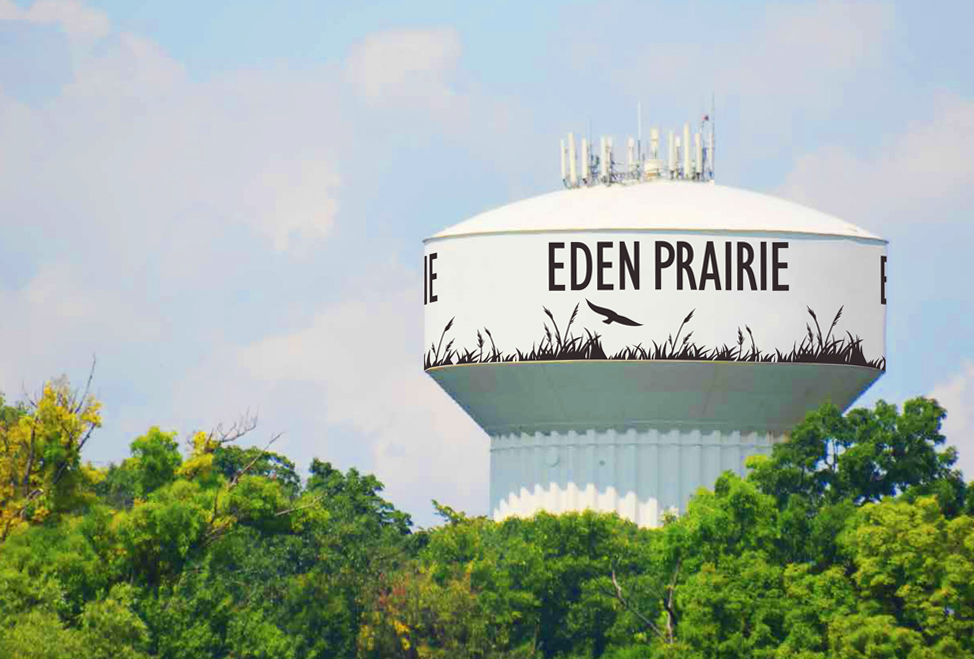Eden Prairie Water Reports and Guides

Once treated, the city delivers water through over 265 miles of water mains.
- Soft Water
- Eden Prairie Water Hardness
Eden Prairie Water Softener Recommendations
Eden Prairie water hardness is rated as “moderately hard” by the USGS. The untreated well water is almost as hard as the infamous Frederick Miller Spring in Eden Prairie. But the city uses a chemical treatment process that alters the pH in order to decrease the water hardness from 18 grains down to around 5-6 grains. A professional-grade Water Softener can reduce the hardness even more for added protection.
Need the Right Water Softener or Filter for Your Home in Eden Prairie, MN?
Contact us for a FREE water test and site inspection. We’ll get you a FREE quote to help you get the water quality you want.
Eden Prairie Water Reports
The City of Eden Prairie does regular water testing and publishes the results in Annual Drinking Water Reports. These reports explain which water contaminants, and what levels have been found.
MCL: Maximum Contaminant Level
The legal limit for a certain contaminant
MCLG: Maximum Contaminant Level GOAL
The level with ZERO HEALTH RISKS, aka the “Health Limit”
All water contaminants meet the EPA’s “Legal Limit”. Contaminants that exceed the EPA’s Health Limit have been highlighted below.
Inorganic Contaminants
Inorganic contaminants include natural and manmade salts and metals. You are mostly exposed to inorganics through drinking water, most do not easily pass through skin. Carbon Filters (refrigerator and faucet filters) have almost ZERO impact on these contaminants. Reverse Osmosis very effective at removing inorganic contaminants.
| Contaminant | Amount Found | Health Limit | Legal Limit | Potential Effects |
|---|---|---|---|---|
| Barium | 0.03-1.03 | 2 | 2 | Increase in blood pressure |
| Fluoride | 0.83-1.2 | 4 | 4 | Bone disease;children may get mottled teeth |
Organic Contaminants
Organic contaminants can come from either natural sources like algae, or man-made chemicals. You can be exposed through drinking water, absorption through skin (bathing), and inhalation. This makes a Hybrid Filter System, or Whole House Carbon Filter a good preventative tool.
| Contaminant | Amount Found | Health Limit | Legal Limit | Potential Effects |
|---|---|---|---|---|
| cis-1,2-Dichloroethylene | 0.22-0.4 | 70 | 70 | Increased risk of cancer |
| Xylenes | 0.0002 | 1.8 | 100 | Nervous system damage |
Disinfectants and Disinfection Byproducts
Disinfectants are added to kill bacteria. Disinfectants like Chlorine react with other chemicals and create “Disinfection Byproducts. These chemicals enter the body through inhalation, absorption through skin, and drinking water. A Whole House Carbon Filter is a good preventative tool in addition to a Drinking Water System for these compounds.
| Contaminant | Amount Found | Health Limit | Legal Limit | Potential Effects |
|---|---|---|---|---|
| Chlorine | 0.8-1.3 | 4 | 4 | Eye/nose irritation; stomach discomfort |
| Haloacetic Acids | 4.3-11.1 | 0 | 80 | Increased risk of cancer |
| Total Trihalomethanes | 27-32 | 0 | 60 | Increased risk of cancer |
Microbial Contaminants
Microbes like bacteria and virus come from a variety of sources. These include water main breaks, leaky septic systems, livestock, and wildlife. Microbial contaminants are mainly consumed through drinking water. Carbon Filters and Water Softeners do not offer any protection against microbes, but UV Treatment is very effective.
| Contaminant | Amount Found | Health Limit | Legal Limit | Potential Effects |
|---|---|---|---|---|
| Total Coliform Bacteria | 1-5% | 0 | 5 | Not a health threat itself; it is used to indicate whether other potentially harmful bacteria may be present |
*Upon re-testing, 0% Coliform Bacteria was detected.
Radionuclide Contaminants
Radionuclides in water may occur naturally, or come from oil and gas production or mining activities. These can be inhaled, or consumed through drinking water.
| Contaminant | Amount Found | Health Limit | Legal Limit | Potential Effects |
|---|---|---|---|---|
| Alpha Emitter | 1 | 0 | 15.4 | Increased risk of cancer |
| Radon | 85 | 0 | NA | Increased risk of cancer |
This information was compiled from Eden Prairie’s water treatment reports, the Environmental Protection Agency(EPA), Minnesota Department of Health(DOH), World Health Organization(WHO), and Environmental Working Group(EWG). Please contact us if there are any missing contaminants, or levels that differ from those outlined on this page
